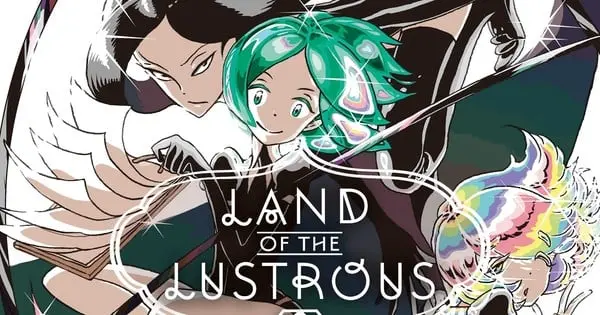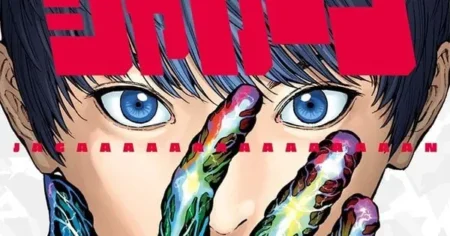Haruko Ichikawa’s acclaimed manga series, Land of the Lustrous (宝石の国, Hōseki no Kuni), has been awarded the Grand Prize at the 45th Nihon SF Taisho Awards. The Science Fiction & Fantasy Writers of Japan (SFWJ) made the announcement, solidifying the series’ place as a significant work in the science fiction and fantasy genres.
A Gem of a Story: What is Land of the Lustrous?
Land of the Lustrous is set in a distant future where Earth has been ravaged by meteorites, leaving only a single coast. In this world, a new race of immortal, genderless beings known as the Lustrous (or Gems) has emerged. These humanoids are the embodiment of gemstones, each possessing unique properties and characteristics determined by their composition.
The story primarily follows Phosphophyllite (Phos), a young and brittle Lustrous with a low hardness, deemed weak and useless by their peers. Phos yearns to contribute to the community by fighting the Lunarians, a celestial race who descend from the moon to harvest the Lustrous and turn them into decorations. Guided by their teacher, Kongo, the Gems must defend themselves against these invaders while grappling with questions of identity, purpose, and existence.
A World Unlike Any Other
The world of Land of the Lustrous is visually stunning and intricately designed. The Gems themselves are a marvel, each with unique appearances reflecting their mineral composition. Their irises even showcase the complex facet of their gemstone shapes when viewed up close. The Lunarians, with their eerie and ethereal designs, provide a stark contrast to the earthly beauty of the Gems.
Themes and Interpretations
Beyond its captivating plot and stunning visuals, Land of the Lustrous delves into profound themes that resonate with readers.
Identity and Change: The protagonist, Phos, undergoes significant physical and emotional transformations throughout the series, constantly grappling with their sense of self as they gain new body parts and experiences. This journey explores the fluidity of identity and the impact of change on one’s perception of the world.
The Search for Purpose: Many of the Gems struggle with finding meaning in their immortal lives, a theme particularly relevant to Phos, who initially feels useless. The series examines different paths to purpose, such as helping others and seeking knowledge.
Loss and Grief: Despite their immortality, the Gems experience loss when their comrades are captured by the Lunarians. This theme explores the nature of grief and the impact of separation on individuals and the community.
Buddhism: The series is heavily influenced by Buddhist philosophy, incorporating concepts such as impermanence, suffering, and the cycle of reincarnation. The Lunarians’ motives are even rooted in Buddhist concepts of attachment to material possessions.
Mortality and Immortality: The Gems’ immortality is a central aspect of the story, allowing for exploration of themes surrounding the value of life, the fear of death, and the impact of living for thousands of years.
The Nihon SF Taisho Award: A Recognition of Excellence
The Nihon SF Taisho Award, presented by the Science Fiction and Fantasy Writers of Japan (SFWJ), is a prestigious award recognizing outstanding works in the science fiction genre. It is often compared to the Nebula Award in the United States. The award considers not only novels but also movies, animations, manga, and other forms of media.
A Distinguished Honor
Winning the Grand Prize at the Nihon SF Taisho Awards is a significant achievement, placing Land of the Lustrous among the most celebrated works in Japanese science fiction and fantasy. Previous winners include influential authors and creators such as Katsuhiro Otomo (for Domu) and Hiroshi Aramata (for Teito Monogatari).
Other Honorees
In addition to Ichikawa’s Grand Prize, the SFWJ also recognized other individuals for their contributions to the genre. Kenrei Miyanishi won the special prize for the short story collection Ginga-Fū Hanzō (Sailing on Galactic Winds). Furthermore, manga artist Kazuo Umezu, translator Haruya Sumiya, and novelist Hiroshi Yamamoto, all of whom passed away recently, received achievement awards for their lifelong dedication to science fiction and fantasy. The 45th Nihon SF Taisho Awards honors works released between September 1, 2023 and August 31, 2024.
The Enduring Appeal of Land of the Lustrous
Land of the Lustrous has garnered a devoted following for its unique blend of science fiction, fantasy, and philosophical themes. The series has been praised for its stunning visuals, complex characters, and thought-provoking exploration of identity, purpose, and existence.
Critical Acclaim and Popularity
The manga has received widespread critical acclaim. It was nominated for the Manga Taisho Award in 2015 and ranked highly on various “best manga” lists. By 2018, the series had over 1.8 million copies in circulation.
Adaptations and Beyond
The popularity of Land of the Lustrous led to an anime adaptation produced by Orange, a studio known for its expertise in CGI animation. The anime adaptation has been praised for its faithful adaptation of the manga’s unique art style and its compelling storytelling.
The success of the manga and anime has further solidified Land of the Lustrous as a cultural phenomenon, inspiring fan art, cosplay, and academic analysis. The series’ exploration of profound themes and its unique world-building have resonated with audiences worldwide.
Conclusion
The Nihon SF Taisho Award is a testament to the enduring power and artistic merit of Haruko Ichikawa’s Land of the Lustrous. The series’ innovative blend of science fiction and fantasy, its exploration of profound themes, and its stunning visuals have captivated readers and viewers alike. As Land of the Lustrous continues to gain recognition and inspire new audiences, its place in the pantheon of great science fiction and fantasy works is assured.









